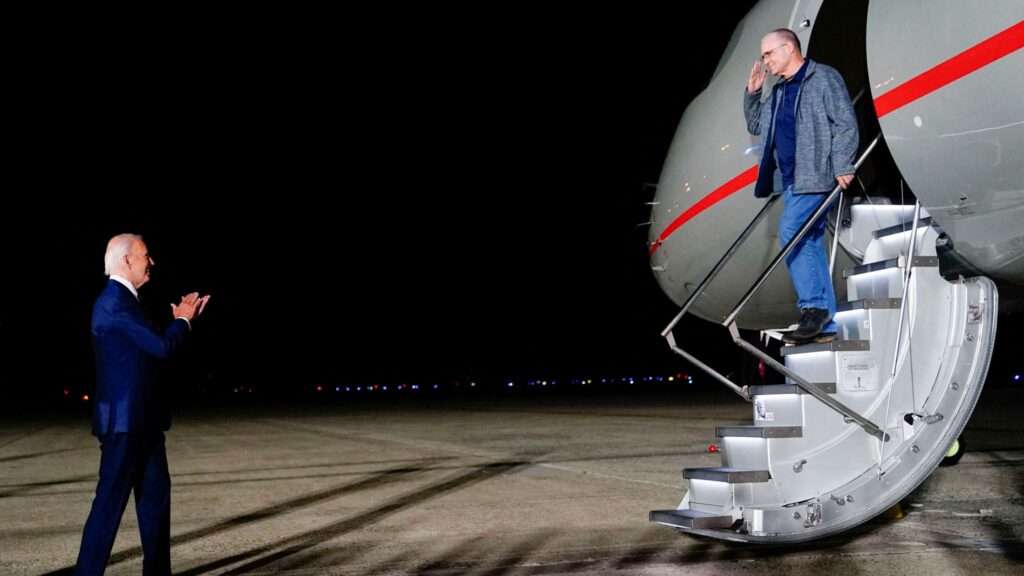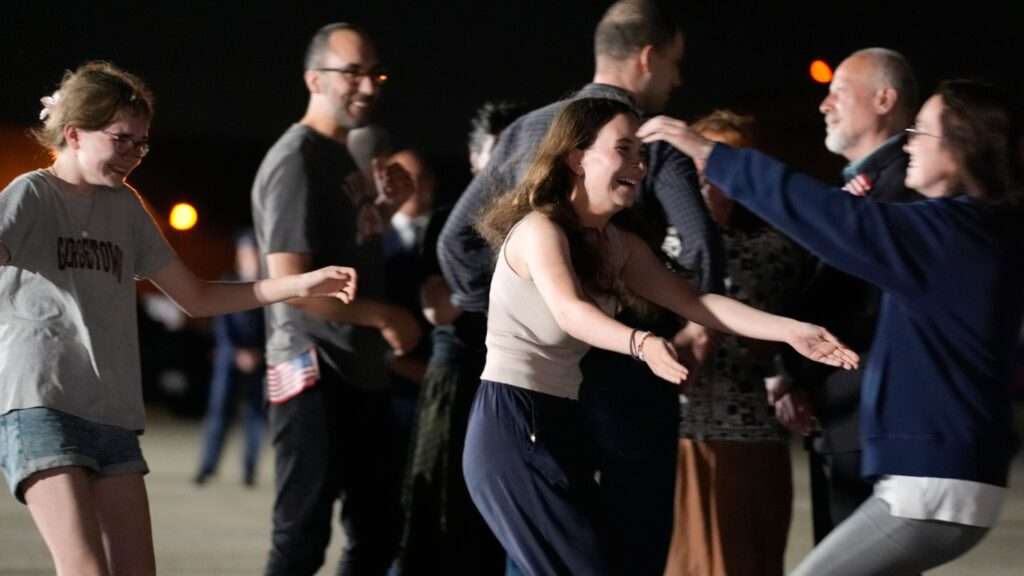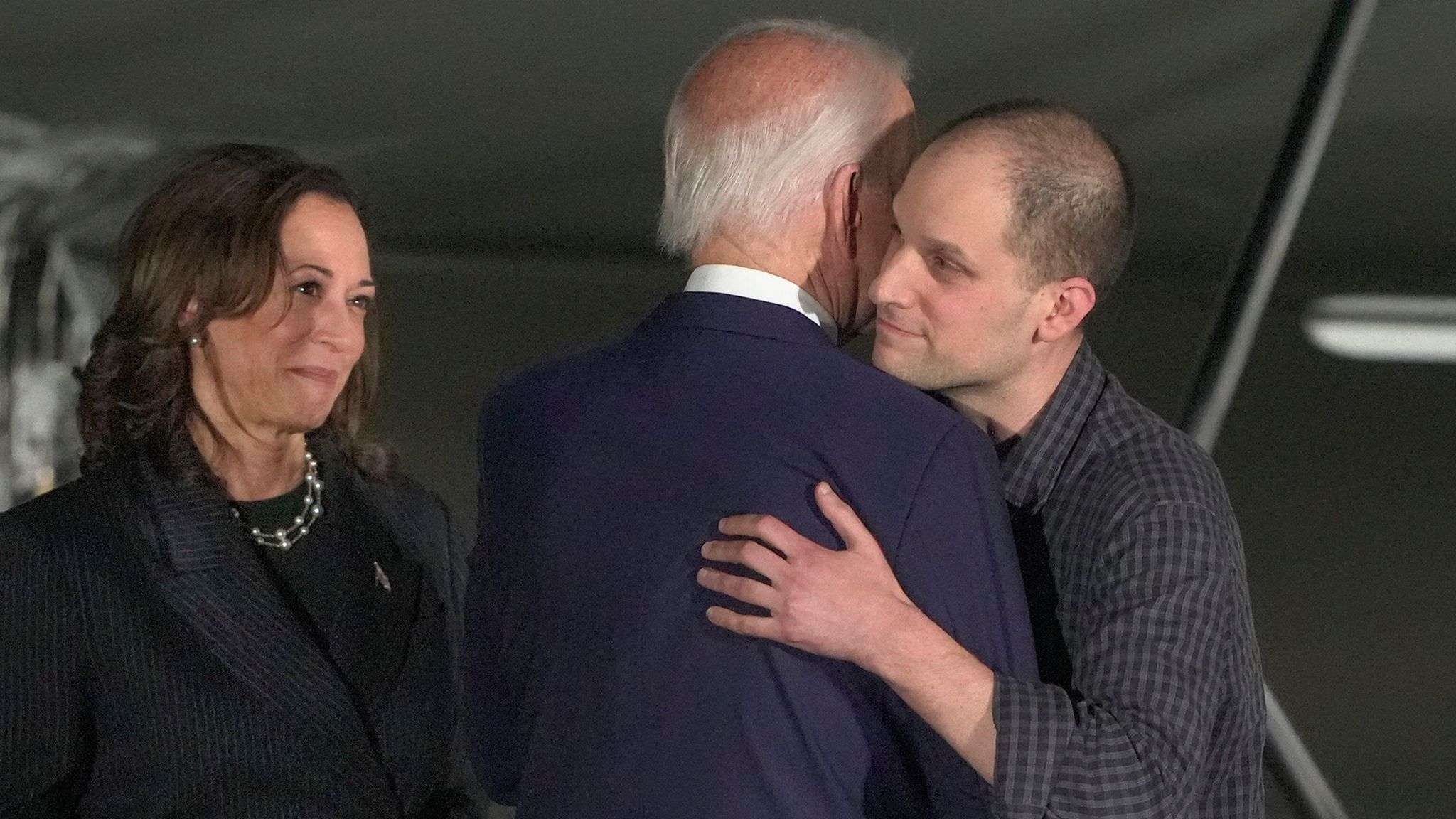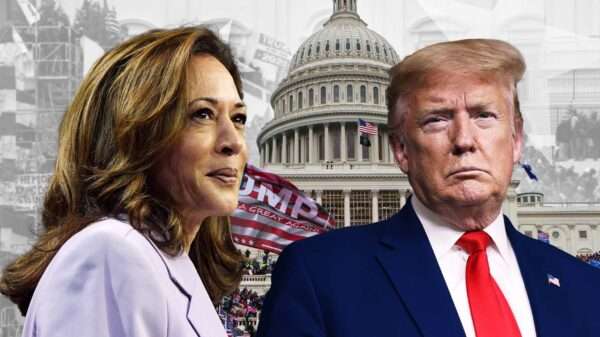In a historic and emotionally charged moment, a group of Americans who had been held in Russian prisons arrived back on U.S. soil following a landmark exchange deal between Washington and Moscow. This extraordinary diplomatic maneuver, which involved intensive negotiations at the highest levels, marks a significant milestone in U.S.-Russia relations, traditionally fraught with tension and mutual suspicion.
The returning Americans were greeted with an outpouring of relief and joy from their families and supporters, as they disembarked from the plane at a U.S. military base. The scene was one of overwhelming emotion, with tearful reunions and heartfelt embraces symbolizing the end of a harrowing chapter for the former prisoners and their loved ones. These individuals, who had been imprisoned on various charges, faced significant hardships during their detention, including stringent prison conditions and lengthy legal battles. Their release has been hailed as a triumph of diplomacy and a testament to the perseverance of those advocating for their freedom.


The exchange deal, while a cause for celebration among the families and communities of those freed, also underscores the complex and often contentious nature of U.S.-Russia relations. The negotiations that led to this agreement were marked by intense dialogue, with both sides making significant concessions. Analysts suggest that this deal could potentially pave the way for further diplomatic engagements, opening up avenues for cooperation on other critical issues. However, it also highlights the delicate balance of power and the intricate dance of diplomacy required to navigate such high-stakes negotiations.
This development comes at a time when global geopolitics is increasingly volatile, with numerous flashpoints that could potentially escalate into broader conflicts. The successful resolution of this prisoner exchange offers a glimmer of hope that even in a polarized international landscape, dialogue and negotiation can yield positive outcomes. The impact of this deal is likely to resonate beyond the immediate sphere of U.S.-Russia relations, serving as a reminder of the importance of diplomacy in resolving even the most intractable disputes.

As the former prisoners begin the process of reintegrating into their lives, they carry with them stories of resilience and survival that will undoubtedly shape their futures. Their experiences in Russian prisons have left indelible marks, but their return home signifies a new beginning. The support and care they will receive in the coming days and months are crucial to their recovery and reintegration.
The broader implications of this exchange are still unfolding, with policymakers and analysts closely watching for any shifts in the geopolitical landscape. The hope is that this successful negotiation will act as a catalyst for further diplomatic efforts, fostering a more stable and cooperative international environment. For now, the focus remains on the safe return of these Americans and the joyous reunions with their families, marking the end of a difficult journey and the start of a new chapter in their lives.








































